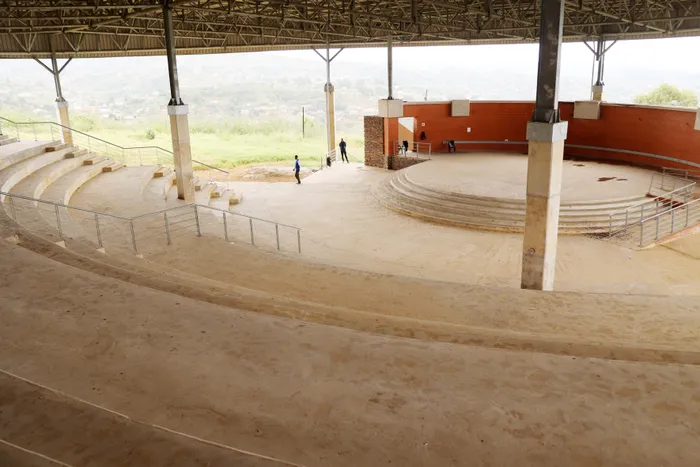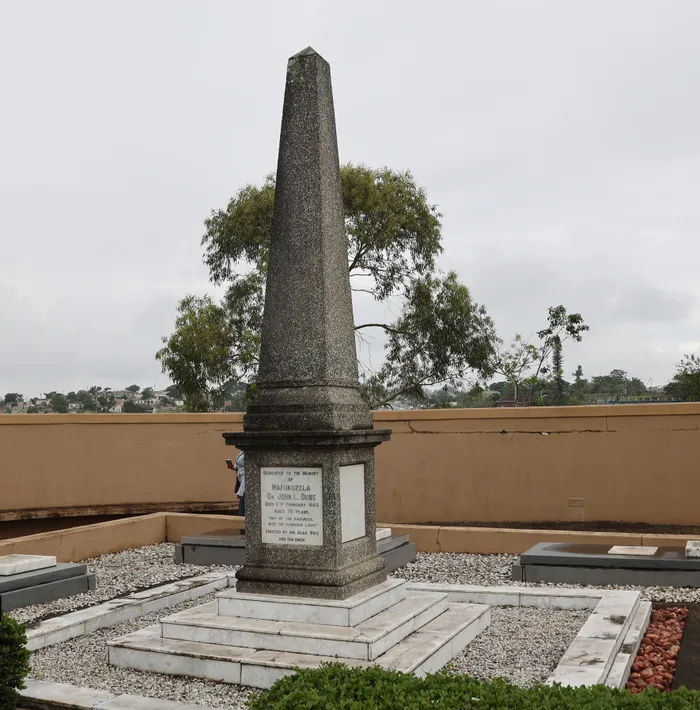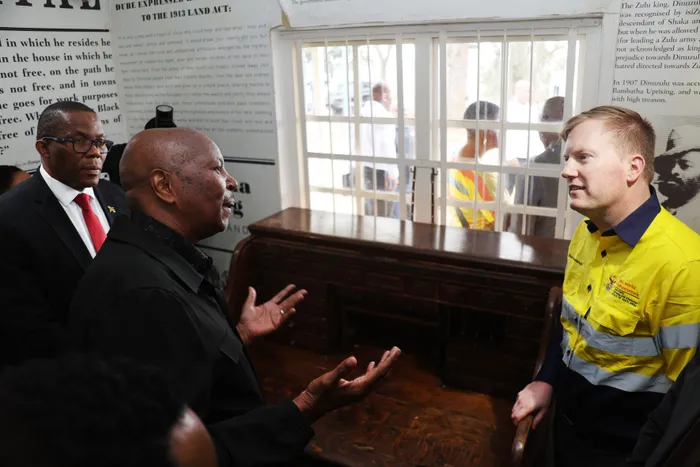Ohlange Institute’s heritage project stumbles under unfinished construction and management issues
LEGACY AT RISK

The amphitheatre at Ohlange Institute remains unusable due to safety concerns and incomplete construction work.
Image: Tumi Pakkies/ Independent Newspapers
The Ohlange Institute, an emblem of South Africa’s cultural history, is currently grappling with serious operational challenges, including extensive delays in construction and quality concerns. Established by Dr John Langalibalele Dube, the first president of the ANC, and his wife Nokutela, the institute epitomises a legacy that is now at risk.
During a recent oversight visit, Public Works and Infrastructure Minister Dean Macpherson expressed dismay at the slow progress and underscored the need for immediate action to resolve these issues. The institute is not just a local beacon, but also holds national and international heritage status, drawing attention from stakeholders eager to see it restored to its former glory.

The grave site at Ohlange Institute, a site of national heritage.
Image: Tumi Pakkies/ Independent Newspapers
Dr Mxolisi Dlamuka, CEO of Amafa KZN and Research Institute, pointed out that the mismanagement of the project has led to an untenable situation. Originally commissioned by the Independent Development Trust (IDT) by the National Department of Sport, Arts and Culture, the project faced serious accusations when an independent evaluation revealed the quality of workmanship did not meet the payments made. This resulted in the IDT being removed from the project.
According to Dlamuka, the subsequent investigation into the amphitheatre — one of the project’s critical components — revealed fundamental structural issues. It was deemed unsafe, prompting recommendations for partial demolition of elements already constructed. The solution to these challenges came with a proposed “floating roof” at an additional cost of R10 million, pushing the overall expenditure of the amphitheatre to roughly R29 million. Unfortunately, Mother Nature intervened in 2023, as storms wrecked the newly installed roof, further complicating the project's timeline.
In addition, there were issues with the purchase of the house associated with the institute. While R1.7 million was reportedly paid to a family trust for rituals, not for the purchase, an additional R1.3 million was expected to conclude the sale, which never transpired. As it stands, the amphitheatre has been transferred to the City of eThekwini, yet it lies idle due to safety concerns and the absence of essential amenities, reducing it to little more than an unfinished structure.
Echoing the sentiment for action, Dlamuka emphasised the necessity for collaboration among national, provincial, and municipal stakeholders in reviving the project. He highlighted the urgency of addressing structural defects, particularly as the World Heritage Committee is due to inspect the site, pointing out that vital repairs were needed to avoid further repercussions.
IDT Board chairperson Zimbini Hill also shed light on the delays, citing financial constraints as a factor that has hindered progress. A memorandum of understanding (MOA) issued by the Department of Arts and Culture in 2012, with an initial budget of R31 million, has long since expired, with R21 million spent to complete about 96% of the initial project phases. Hill confirmed that while the homestead's fencing and graves were completely finished, only 92% of the amphitheatre was completed, with essential works yet to be addressed.

eThekwini Municipality Mayor Cyril Xaba, Dr John Langalibalele Dube’s grandson, Langa Dube, and Public Works and Infrastructure Minister Dean Macpherson inside the JL Dube Interpretation Centre during a walkabout of the Ohlange Institute.
Image: Tumi Pakkies/ Independent Newspapers
Furthermore, KZN Public Works and Infrastructure representative Nkosi Vilakazi revealed additional financial mismanagement issues, noting that an inadequate transaction process had delayed the house's purchase, despite previous payments made. He recommended that urgent steps be taken to recover the lost R1.3 million and reassess the costs involved in the house’s purchase.
Minister Macpherson reiterated the need to ensure that public funds are safeguarded. “We should be going to liquidate those individuals in their personal capacities and receive that money,” he stated.
IOS
Related Topics: